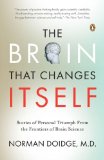
Did you know that your brain operates in two different modes when it’s going through a learning experience?
A brain in learning mode is completely different from a brain in application mode.
So how is it different?
In the learning phase, the brain is able to take in a complete overview without needing to know specific details. But the moment it switches to application mode, it needs more than just concepts. It needs immediate steps.
So let’s take an example:
E.g. You want to learn to say ‘goodbye’ in Swahili.
Well, you may have heard someone saying ‘goodbye and see you soon’ in Swahili several times. So when you hear the sound, and the sequence of words, your brain already knows that ‘goodbye’ is being said. And the brain knows the meaning of the words being said.
But if you don’t know the meaning of the words, then you simply notice that everyone’s smiling and crying. And you can’t figure out why. When you understand the words, you are now not only understanding it, but able to comprehend it.
But are you able to say it?
No.
Because you still have to work out the pronunciation at the very least.
But a brain that is in learning mode is different from a brain in application mode.
In the learning phase you can take in three days of talk in a seminar (even if you don’t remember it all). But in application mode, you want the most immediate steps.
This is why people don’t learn quickly
They expect to read a book, or listen to an audio and get the concept instantly. But your brain isn’t working like that at all. It’s first taking an overview, then slipping into application trying to decipher the steps.
This is why I will listen to the same thing over and over again
I’ll learn languages by listening, or doing the same thing over and over again. I’ll listen to the same audio five-seven times. And I’ll read as well as make notes of a book, often going back to it to read again. Because I understand my brain.
Do you understand yours?
There’s more efficiency in reading one book five times than there is in reading five books.
There’s more efficiency in listening to one audio several times than listening to ten audio files.
Repetition isn’t for repetition’s sake.
Repetition is meant for the brain to first get an overview, then apply.
So now, read this article twice, will ya?
Then apply it to your reading, listening etc.

Ok, so it’s a big question.
Because there are loads of elements that make a person a super-genius.
But there’s one thing that is guaranteed to stop you from becoming brilliant.
That one thing is the inability to take feedback.
Feedback as in brutal feedback
Feedback as in things you don’t want to hear.
Feedback as in ‘things that make you feel like crap’.
Super-genius is built on such crappy moments
The stars in any field are those that shut up when feedback is being given.
They don’t defend themselves. They just listen. They take notes. They then sit back and do an analysis of what’s being said.
They feel crappy just like you do when you’re being criticised. 🙁
But super-geniuses are super, because they realise that the people giving the feedback aren’t petty.
That the feedback is actually a mechanism to help the genius go up to another level.
So super-geniuses tend take the feedback.
Then they do something that most people don’t.
They correct their actions.
They self-correct.
And they seek more feedback.
But the average-Joe is average because they live in ‘testimonial’ land.
They want people to say nice things about them.
They’re not really interested in feedback.
They’re not really interested in hearing stuff that makes them feel like crap.
And even if they do listen—which they almost never do—they never implement the self-corrective measures.
And so they stay where they are.
Stuck. Unsure. Disheartened. Unwilling to take the brutal feedback.
Brutal feedback is um, brutal.
If you want to become a super-genius, you can’t duck, or weave.
Take the punch. And then self-correct.
Ok, I’m back after my extended ‘vacation’.
And here’s a biggie: I’m amazed at this book. And if you’ve ever wondered about the factor of getting old (and stupid), or wondered how we learn (and unlearn stuff), then you need to read this book. I intend to take snippets of the information and put my own spin to it over the weeks and months to come. You’ll understand all of that information so much better, and how it relates to talent—if you read this book.
If there was one recommendation I’d make for Feb 2008-Feb 2009, it would be this one.

The Brain That Changes Itself

Do you know the story of the Rosetta Stone?
You do, don’t you?
You know how archaeologists couldn’t make head or tail of hieroglyphics.
And it’s not like they didn’t try. They just weren’t able to figure out what those nice little pictures on the Egyptian monuments really stood for. And then of course, in mid-July 1799, these scientists and archaeologists ran into this massive rock, which they dubbed the Rosetta Stone.
What was so dramatic about the Stone?
The drama was that there were three translations of one passage carved on the Stone. Namely Demotic, Hieroglyphic and Greek. And since the kind folk who found the stone knew Greek, they were able to ‘de-code’ the Hieroglyphics.
But what has this got to do with your learning?
I’ve been trying to learn Spanish since I was in school. I first tried to learn under some Spanish Jesuits. Then I bought a Harrap’s Audio. Then raided the library more than once to borrow some Spanish CDs or tapes. And no it doesn’t stop there. I went for Spanish classes for a whole year.
And what bugs me is that every three year old in South America can probably speak better Spanish than I could, despite all of this trouble. But then I ran into a language series called—ironically—the Rosetta Stone. That’s when I first started to decode the language. And got much better at learning words and phrases. But I still wasn’t having fun, till I ran into Coffee Break Spanish.
I’d found my Rosetta Stone
In a matter of days, I was not only learning Spanish, but having fun. So much fun that I decided to learn Spanish and French at the same time. Like the original Rosetta Stone, I was deciphering two languages simultaneously.
For some people, their Rosetta Stone is reading.
For some, it’s listening to audio.
For some, it’s being in groups and working in a live workshop.
For some, it’s working alone.
Whatever the method, recognise there is a Rosetta Stone.
It’s not that things are too hard to learn, and you’re not talented.
All it actually means, is that you haven’t found your Rosetta Stone.
Yet!
¡Hasta pronto!

Just 5 minutes drive from where we live. The splendour of Rangitoto – a now dormant volcano.
Most people don’t take breaks.
They see it as counter-productive.
They’re wrong.
Breaks, when planned, are what makes your work productive.
And we plan our breaks every year, so our brains can boot down, and come back refreshed and renewed.
As I wrote in 5000bc:
I learned this from a friend, Julia. She books all her vacations in advance. Long before she knows what’s going to turn up in the year. Then the vacation becomes non-negotiable. I thought that was a cool idea. We’ve been doing it almost every year since 2004.
I found that vacations are not a nice-to-have. They’re a crucial part of relaxing the brain. The years when I’ve not taken a break, I’ve achieved less. And earned less.
Have a good break.
We certainly will. 🙂
You may not have heard of Paul Wolfe.
You may never hear of Paul Wolfe.
But someday soon Paul Wolfe will grow his business.
And by the time we finish with the year 2012, Paul will be extremely successful.
So what is this prediction based on?
You see Paul doesn’t have many subscribers to his website (At last count he had less than 20).
In fact, he just started doing YouTube Videos a while ago (Maybe a month or less).
And those videos have bad lighting. And aren’t something magical.
But the magic isn’t in the videos.
Or the subscriber list.
It’s in the daily routine.
You see, every night before he goes to bed, Paul writes down what he’s done every single day.
And the achievement for the day.
And every single day he’s doing a little bit more. And more. And even more, as you may expect.
Which tells me one thing.
I don’t care how talented Paul really is.
I don’t care if his videos never improve.
I know that he’ll succeed.
Because the DNA of successful people is exactly the same. They keep at it. They do stuff every day, and keep at it relentlessly.
Which is why this is my prediction for 2012.
Paul Wolfe will be running a reasonably successful business.
Despite the recession.
Despite the blah, blah.
Despite everything you hear.
He’ll do it.
Watch this space.
Or watch his videos.
http://uk.youtube.com/user/howtoplaybassdotcom
And here’s the reasoning why: http://www.psychotactics.com/artmastery





